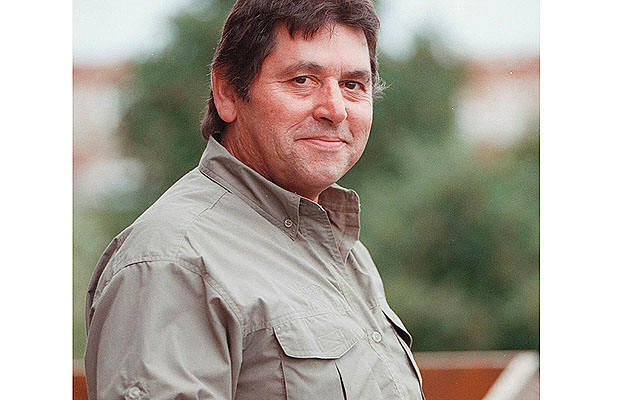

Duplicity and compartmentalization are easy for a lot of people, he says, especially when they're doing something so horrific.
Serial killers are sociopaths, and have no feelings of guilt or remorse for those they harm. "So they're not being torn apart," says Leyton, a Canadian anthropologist and expert on the psychology of multiple killers.
"If you strangled somebody in a fit of rage, you wouldn't be able to cope with it. You'd either kill yourself or turn yourself in. The thought of it would be just utterly overwhelming to you," Leyton says. "You would at some point be able to see what you've done — you've killed a human being."
But serial killers don't see others as human beings, he says, only tools or toys to be used.
"So they have no guilt, no remorse, no feelings of having done something wrong," Leyton says. "There's just more triumph."
If police and a Crown prosecutor can prove the startling allegations of murder and rape facing Col. Russell Williams, the air force commander charged with killing two women and sexually assaulting two others, the question many will be asking is: How could he have hidden his dark secret from his wife?
For serial murderers like Robert Pickton, one of Canada's most prolific killers, secrets can be easy to hide. Convicted in 2007 of the murder of six women who disappeared from Vancouver's Downtown Eastside, Pickton was a loner, living on a Port Coquitlam, B.C., pig farm "in the middle of nowhere," says Mike Arntfield, professor of information and media studies at the University of Western Ontario in London, and a 10-year police veteran. "It's not difficult for him to keep his activities a secret."
But there are cases of killers living duplicitous, dichotomous double lives, he says, who "feign normality as this soccer dad and loving husband, and then they have this deep dark secret."
Dennis Rader, the so-called BTK ("bind, torture and kill") strangler, murdered 10 people around Wichita, Kan., between 1974 and 1991 before he was caught. Rader was a bylaw officer and father of two, a Cub Scout leader and an elder in his Lutheran church.
Leyton says serial killers all live double lives, "and do so with ease."
Williams was an elite pilot, a "shining bright star" of the military, who rose through the ranks during his 23-year career to fly the prime minister and Governor General across Canada and overseas in one of four Canadian Forces Challenger jets.
He and his wife, Mary Elizabeth Harriman, have a cottage in Tweed, Ont., as well as a newly built home in Ottawa, where Harriman works for the Heart and Stroke Foundation of Canada. The two have no children.
They have been a couple since at least 1991, the year a search of old city directories shows they were sharing the same apartment in Portage la Prairie, Man., where Williams was then working as a flying instructor at the Canadian Forces Flying Training School.
"We often wrestle with how they do it, the double life. Why they stay with someone to whom they do not reveal," says Dr. Frank Farley, a psychologist at Temple University in Philadelphia and past president of the American Psychological Association.
The relationship can provide a legitimacy, a cover, says Farley, a native of Edmonton. But it can also provide crucial emotional stability in an otherwise unstable, violent and risky life, a psychological space the killer can step into. "That has survival value for him, surviving in his head when he's doing these heinous other things to women.
"He can red-line that relationship with her, keep it intact, compartmentalize it."
Farley stressed he can only speculate on the Williams case. But as many as 20 per cent of men state in anonymous surveys that they have had affairs. "If we can maintain this kind of dual lives, if many people can do it in ordinary life, we shouldn't be surprised that some people are able to maintain it at a more extreme level."
For men with a sexual preoccupation or paraphilia — defined as frequent, intense and sexually arousing fantasies or behaviours that usually involve objects (such as shoes or underwear), the infliction of pain, or having sex with non-consenting people — "nobody will know that he has it, even his wife won't know," says Dr. Kulwant Riar, an associate professor in the division of forensic psychiatry at the University of British Columbia.
He was involved in the case of a man who killed a woman, and then raped her corpse. "He kept her with him for a while," Riar says.
The man's ex-wife later told Riar that whenever she had sex with her husband, "he didn't want her to move at all, just lie dead."
"She didn't think anything of it at the time, because she didn't know anything about it."
Sexual deviancy doesn't start overnight.
"A lot of these things start when they're kids," says Tod Burke, a criminal justice professor at Radford University in Virginia and a former Maryland police officer who has published on profiling serial killers. "They have a fetish, and it could be a lingerie fetish, and just going through someone's laundry, or going to a laundromat to steal it, that thrill is not enough, and so they one up it. So now, let's break into homes and steal it. And now let's say the person is in the home. Now we can tie them up and do this.
"It just keeps going and going and going. They get to a point where they become out of control, even though they're control freaks."
With files from Kirsten Smith